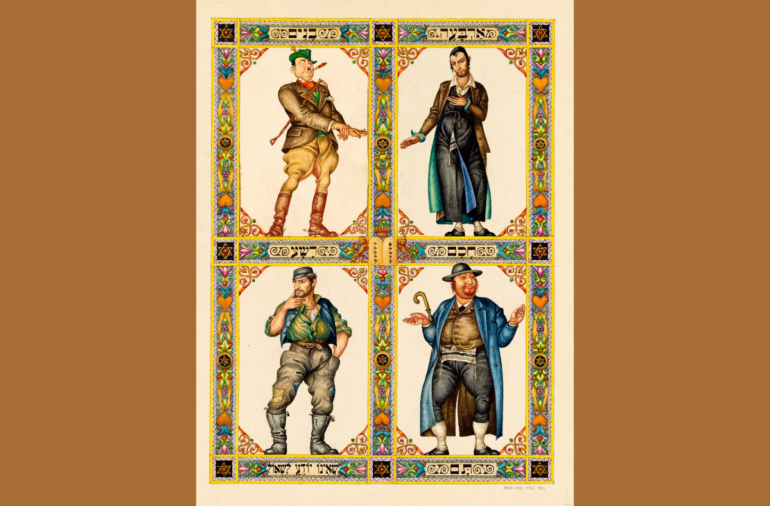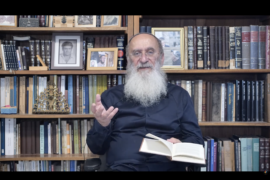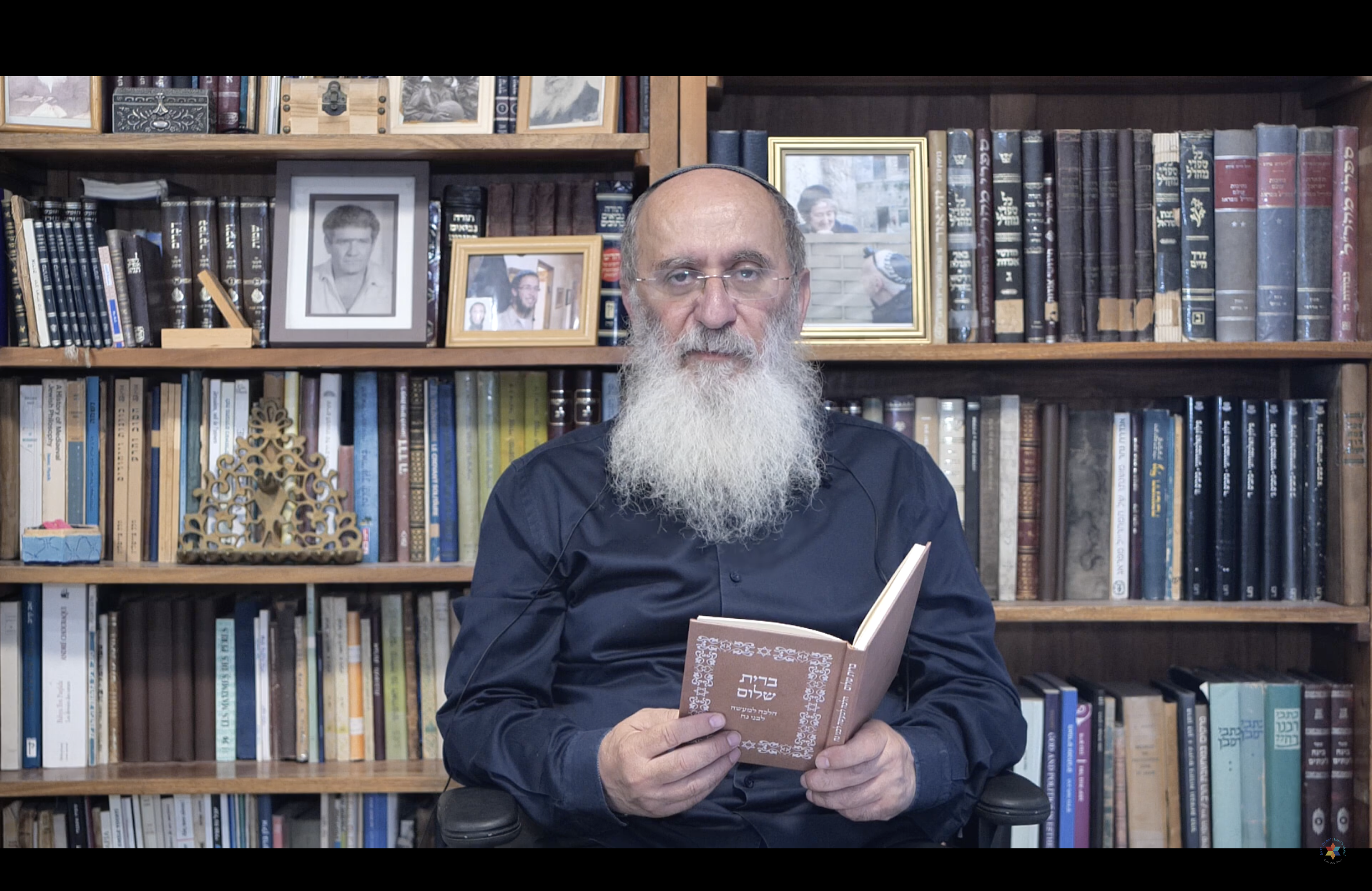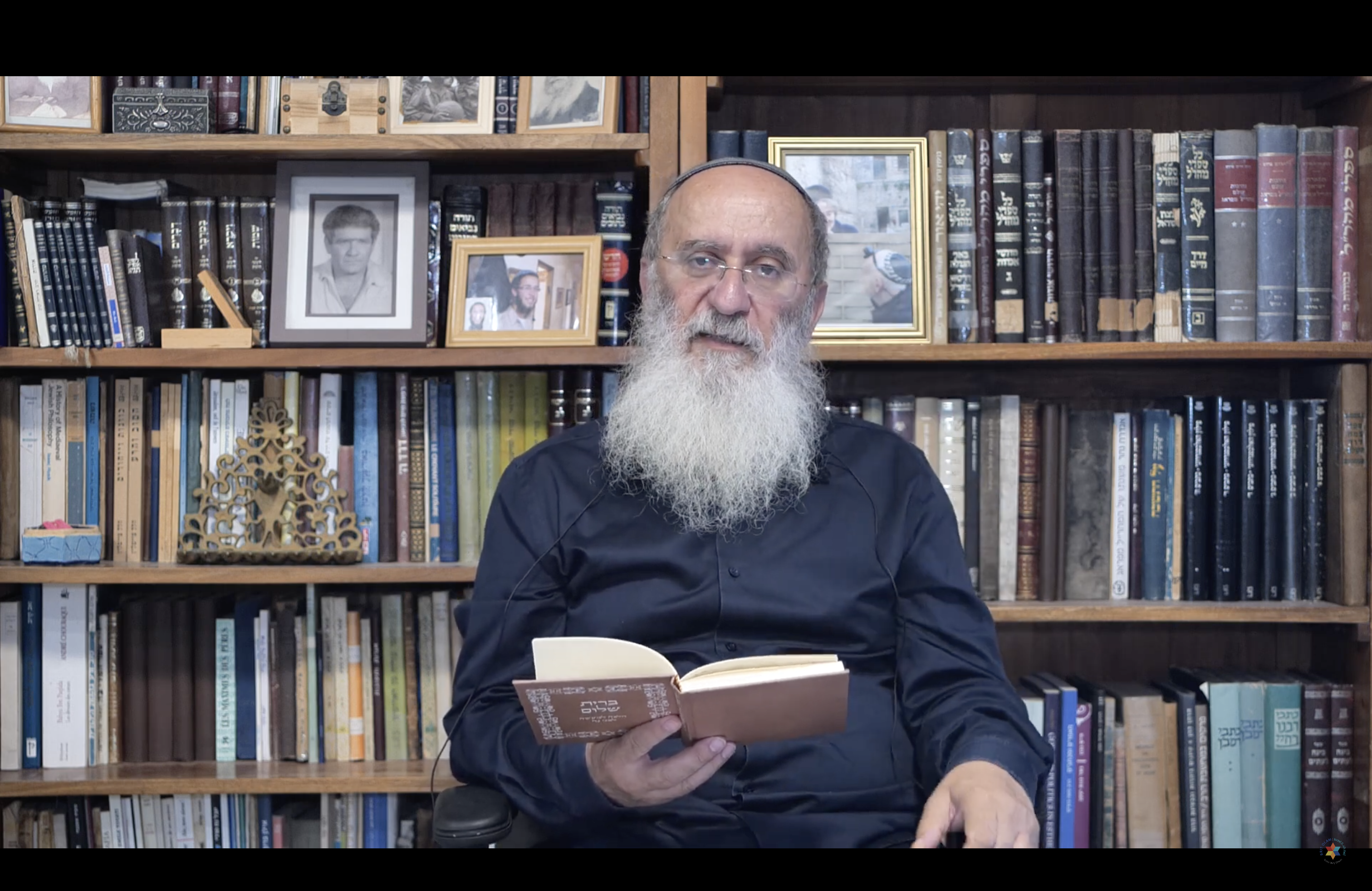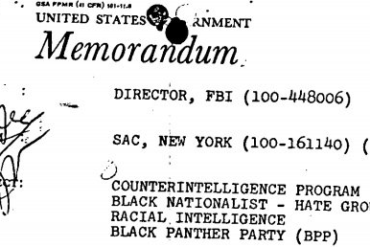This article aims to reveal the hidden messages in the story of Israel’s Exodus from Egypt and the Passover seder, making them accessible to a broader audience – particularly those from non-Jewish backgrounds.
For generations, this narrative’s profound symbolism and universal truths have remained mainly within the Jewish community. But with the Jewish people’s return home, it’s time to share these insights with the rest of humanity.
The Exodus story is not merely a historical account of the Jewish people’s liberation; it’s a timeless narrative of freedom, redemption, and hope that resonates with all of humankind. It speaks to the universal longing for liberation from oppression and the pursuit of a better future.
Through the unique traditions of the Passover seder, we explore profound questions about faith, identity, and the human condition. The seder encourages us to engage in dialogue, challenge assumptions, and seek more profound understandings. It’s a celebration of freedom that invites everyone to participate in the journey of self-discovery.
As you read this article, I invite you to explore the connections between the ancient story of the Exodus and the challenges we face today. This narrative’s messages of hope, resilience, and the pursuit of justice can inspire us to create a more compassionate and equitable world for all.
I hope that this exploration of the Exodus story and the Passover seder will enrich your understanding of this profound tradition and its relevance to your life. I encourage you to ask questions, engage in dialogue, and discover the timeless wisdom that lies within.
Revelation Through Creation (Laws of Nature) or Through the Divine Will (Providence)
Faithful Transmitter of Tradition: We are discussing Passover, a time for deep reflection on the essence of our connection with the Creator. One way to understand this connection is through revelation. The Creator reveals Himself to us in two primary ways: through creation and through the Divine will.
Truth Seeker: Could you elaborate on the difference between these two ways?
Faithful Transmitter of Tradition: Certainly. Revelation through creation refers to our understanding of the Creator through the world He has made, mainly through natural laws. When we observe nature, its complexity and its harmony, we can infer that an intelligent and infinite Power is behind all of this. This process involves careful observation and conclusions based on what we see.
Truth Seeker: And when does the Creator reveal Himself through will?
Faithful Transmitter of Tradition: Revelation through will occurs when the Creator reveals Himself to us more directly, such as through the TaNaKh. The Hebrew Bible represents the Creator’s word and conveys His will as transmitted to us. This process entails prophecy (a direct reception of instructions and values from the Creator).
The Haggadah Discusses Four Sons (representing different connections with the Creator)
Truth Seeker: If we talk about revelation, how does this relate to the four sons we mention on the seder night?
Faithful Transmitter of Tradition: The four sons represent four different types of people or approaches to connecting with the Creator and accepting the Torah.
Let’s start with the wise son.
The wise son asks, “What are the testimonies, the statutes, and the judgments which HaShem our God has commanded you?” He’s aware of a system of Divine laws and wants to understand it more deeply. He addresses the question in the plural (“you”) because he understands that the Torah was given to the entire people of Israel, and he is part of this nation.
Truth Seeker: And what about the wicked son?
Faithful Transmitter of Tradition: The wicked son asks, “What does this service mean to you?” He refers to the commandments as a foreign service to him, as something that belongs only to others (“to you”) and he excludes himself from the community of Israel. His approach is one of opposition and alienation.
[This describes someone who, while initially uninformed, possesses a genuine curiosity that leads to greater receptivity to truth rather than engaging in a superficial or aimless search.]
Truth Seeker: Interesting. So why was the Torah given? For whom is it most necessary?
Faithful Transmitter of Tradition: Prophetic revelation is especially necessary for the simple son. The simple son asks plainly, “What is this?” He doesn’t understand on a deep level but he’s curious and wants to know. With its explanations and details, the Torah is intended to address this curiosity and teach in a way that is easy to understand.
Truth Seeker: What about the son who doesn’t know how to ask?
Faithful Transmitter of Tradition: The son who does not know how to ask lacks fundamental curiosity. He is indifferent, uninterested, and does not express any questions. In such cases, we are instructed, “You shall open for him,” which means we need to initiate the conversation, spark his curiosity, and engage him in the discussion.
Truth Seeker: You mentioned earlier that the wise son understands the system of laws. Does he also understand Divine revelation through Creation?
Faithful Transmitter of Tradition: Absolutely. Through his wisdom and understanding, the wise son can also see the revelation of Divine providence through Creation. He recognizes that the world was created with purpose and meaning, and he strives to understand this purpose.
Truth Seeker: So the unique characteristic of the wise son is his optimism.
Faithful Transmitter of Tradition: Basic optimism is one of his prominent characteristics. This stems from his deep understanding of the fact that everything has a purpose. Therefore, the commandments also have meaning. He does not see them merely as a burden but as an opportunity to draw closer to the Creator and to understand His will.
Truth Seeker: Could we try to find a standard criterion for defining the four sons?
Faithful Transmitter of Tradition: The central criterion is their relationship to the purpose of creation. The wise son understands that there is a purpose and seeks to be part of it. The wicked son denies this purpose, or at least disconnects himself from it. The simple son is curious about the purpose but does not yet understand it on a deep level. The son who does not know how to ask is unaware of the need to even seek purpose.
Four Sons in the Clan of Avraham (Four Approaches to the Connection with the Creator)
Truth Seeker: That’s very interesting. If we look at key figures in Scripture, who could represent the simple son?
Faithful Transmitter of Tradition: Yaakov, our ancestor, the chosen of the patriarchs, is a complex figure who can represent both the simple son and the “Man of Truth.” When the Torah was lowered into this world, it was given to his descendants. He was straightforward and upright, but he also sought the truth and was willing to fight for it, as seen in the story of his wrestling with the angel.
[It’s based on two verses: “…whereas Yaakov was an innocent man, dwelling in tents (B’reishit 25:27)”, and, “You shall give the truth of Yaakov…” (Mikha 7:20)]
Truth Seeker: And who could represent the son who does not know how to ask?
Faithful Transmitter of Tradition: Some identify Yishmael as the son who does not know how to ask. Yishmael is described as a “wild donkey of a man… (B’reishit 16:12)”, meaning someone who lives a wild life without defined order or laws. He shows no interest in fundamental questions about life or a connection with the Creator.
Truth Seeker: You mentioned the wicked son earlier. Is there a remedy for him?
Faithful Transmitter of Tradition: According to tradition, the wicked son was not redeemed in the Exodus from Egypt because he had disconnected himself from the people of Israel. But there is hope that when the world reaches its final state of repair at the end of days, he too will be redeemed. This teaches us that there is always potential for change and correction, even in those who seem furthest away.
Truth Seeker: What is the difference between “wicked” and “evil”? Are they the same thing?
Faithful Transmitter of Tradition: Not precisely. “Evil” refers to a person who engages in harmful actions that negatively impact others. On the other hand, “wicked” describes someone who actively rebels against fundamental values. Against the Creator and against tradition. A “wicked” person’s intentions are inherently harmful. Someone can act evilly without having a wicked outlook or intention. However, a person with a wicked perspective is likely to exhibit evil behavior as well.
Truth Seeker: If we have a son who does not know how to ask, at what stage of the seder night should we begin explaining?
Faithful Transmitter of Tradition: We must start with him as early as possible. Even before we get to the part of the four sons in the Haggadah, we need to create an atmosphere of openness and curiosity. We can tell him stories about the Exodus from Egypt, show him the matza and the other symbols of the seder, and arouse his interest even before he understands that he has questions to ask.
Truth Seeker: Can we also see the four sons within Avraham’s family?
Faithful Transmitter of Tradition: Absolutely. Some identify the four sons within Abraham’s family. One of the commentators on the Haggadah asked which family has four such sons: one wise, one wicked, one simple, and one who does not know how to ask. And he found a compelling explanation, that it is the family of our ancestor Avraham.
He has a wise son, Yitzḥak. Is there a sacrifice to offer? I am ready. What is the Wise Son’s question? “If your son asks you in time to come, saying, ‘What are the testimonies, the statutes, and the ordinances, which HaShem our God has commanded you?’ (D’varim 6:20)” So Yitzḥak is ready to be the Passover offering.
The wicked one is certainly Esav, just as the evil son at Passover asks, “What does this service mean to you? (see Sh’mot 12:26)” So Esav asks, “For what purpose is this birthright to me?” – meaning he does not want to be a servant of the Creator. He rejects the Hebrew mission.
The innocent son is Yaakov. The verse says, “And Yaakov was an innocent man, dwelling in tents” (B’reishit 25:27)
It doesn’t just say innocent, but “an innocent man.” That is to say, Esav is defined as a hunter, “a skillful hunter, a man of the field.” “Man” means strong. And all his strength he uses through nature – a man of the field – while Yaakov is also strong. He is not just defined as innocent but also as a man, and he chose to be innocent. He could have been otherwise, but it is his merit and strength that even though he is a man, like Esav (they were twins), he chose the path of simplicity.
And the one who does not know how to ask? That is undoubtedly Yishmael. We reviewed the entire Scripture and did not find Yishmael speaking. Yishmael does not speak in any verse, even though he knows how to cry.
Archetypes for Later Generations
The four sons in the Passover Haggadah should be seen as distinct cultural and spiritual archetypes. Yitzḥak and Yaakov embody the essence of the Hebrew tradition, representing the dimensions of righteousness and simplicity, respectively. On the other hand, Esav mirrors aspects of Western culture, rooted in the legacy of ancient Rome and its Christian offshoots. Lastly, Yishmael symbolizes the world of Islam.
As we delve into the narrative, we discover that despite their diverse backgrounds and perspectives, each archetype has the potential for redemption and reconnection with the Creator. This echoes the primordial harmony of creation, where all beings were united in their relationship with the Divine.
The key to this restoration lies in the connection to the people of Israel, who have returned to our ancestral homeland. This return signifies a pivotal historical moment, a catalyst for spiritual renewal and mending the fractured relationship between humanity and the Creator. It’s worth exploring this profound symbolism and its implications for today’s world. The story of the four sons offers a powerful message of hope and reconciliation, reminding us that even in the face of deep divisions, the potential for unity and redemption remains.
The Ability to Accept Exile Merits the Land of Israel (the Creator’s “Home Field”)
It’s a common misconception to view exile solely as the physical displacement of the Jewish people from our land. But this perspective is incomplete. In essence, the very act of creation by the Creator signifies the departure and distancing of the entire world from its Source. The depth of the word “bara” (to create) in the Aramaic language suggests “to go outward” or “to separate” from the Creator. Consequently, every human being, regardless of their background, exists in a state of distance from the Creator – a state of spiritual exile.
The Exodus from Egypt teaches us that the willingness to acknowledge our exile is the first step towards redemption. We can bridge the gap and return to closeness through humility and a sincere desire to connect with the Creator according to His instructions. This understanding transforms the concept of exile from a historical event affecting only the Jewish people to a universal human condition, offering a path toward spiritual reconnection for all.
Revelation Through Creation or Through Will – Providence and Prophecy (Review)
Truth Seeker: We have returned to the topic of revelation. Is there anything else necessary to add?
Faithful Transmitter of Tradition: Yes. It is essential to understand that the two channels of revelation – through creation and will (providence and the Torah) – are complementary. Creation testifies to the existence of a wise and powerful Creator, and the Torah reveals both His will and the best means to draw closer to Him. Together, they give us a fuller picture of our connection with the Creator.
It’s also important to acknowledge, however, that the perception of the Creator through nature is just one perspective. Another viewpoint sees the laws of nature as a veil concealing Him. Those who observe the world may perceive it as operating according to fixed laws, thereby obscuring the Divine presence. The choice of how to perceive the world is personal, a fundamental act of free will. As Immanuel Kant recognized in his analysis of the world’s creation, this is one of the basic antinomies. No one can force another to think or believe otherwise. This is the essence of free will.
Therefore, while creation can reveal HaShem’s wisdom, it can also be an obstacle to perceiving Him. On the other hand, the Torah offers a direct revelation of the Divine will, transcending the limitations of natural observation. Both perspectives are valid, and each individual must choose which to embrace.
Truth Seeker: If we return to revelation momentarily, can we see it as removing a veil?
Faithful Transmitter of Tradition: Exactly. Revelation is like removing a veil that hides the truth. We can see part of the truth through creation, like shadows on the wall. But through the Torah, the veil is completely removed, and we can see the light itself, the clear and absolute truth.
Truth Seeker: You spoke earlier about exile. What is the connection between exile and Passover and the Exodus from Egypt?
Faithful Transmitter of Tradition: Exile is a central part of the story of the Exodus from Egypt. The children of Israel were in exile in Egypt, and only after they were ready to accept the yoke of exile upon themselves did they merit redemption and leave for the land of Israel. This teaches us that whoever is capable of receiving the difficulties and challenges of exile out of faith and hope for redemption is the one who can ultimately merit the land of Israel (see Sefer HaKuzari chapter 9).
Truth Seeker: You spoke earlier about exile and its connection to the land of Israel. What about the lives of Jews in exile? Do they have spiritual significance?
Faithful Transmitter of Tradition: Absolutely. The journey of the Jew in exile has two aspects (see Olat Re’iyah Part II, page 274). On the one hand, it is a significant challenge, a period of difficulty and trials. On the other hand, there is also positive potential in exile. The Kabbalists speak of “gathering the sparks” – collecting fragments of holiness and goodness found in different places worldwide.
Truth Seeker: Could you explain more about “gathering the sparks”?
Faithful Transmitter of Tradition: When the Jewish people went into exile, they took the Divine light, the Torah and the commandments. But some of this light was scattered amongst the nations. When a Jew lives in exile and deals with its challenges, he can discover and gather these sparks of holiness that are also found in other cultures.
Truth Seeker: But you also mentioned a negative aspect of exile. What is it?
Faithful Transmitter of Tradition: The negative aspect is the danger that the Jew will forget his original identity as an “Israeli” who is temporarily in exile. He may begin to adopt the identity of the host nation among which he dwells as his primary identity and view his Jewish identity as secondary. At some point, he may forget it altogether. This is the phenomenon of assimilation, one of the greatest dangers of exile.
Truth Seeker: So, what happens when a Jew returns to the land of Israel?
Faithful Transmitter of Tradition: Returning to the land is a complex and lengthy process of identity. He needs to become an “Israeli” again in the complete sense of the word. To do this, he needs to “Hebraize” the sparks he gathered in exile – to integrate them into his identity and culture. At the same time, he needs to get rid of the “shell” he brought from exile—that foreign cultural identity of the nation he lived in.
Truth Seeker: What is meant by the “shell of Aram”?
Faithful Transmitter of Tradition: Among the Kabbalists, the “shell of Aram” refers specifically to the influences of Aramaic and Babylonian culture on the people of Israel during the first exile. But in general, it can refer to any foreign cultural influence that may distance a person from his identity and tradition.
Avraham Was Not in Exile
Truth Seeker: You mentioned our ancestor Avraham earlier. Was he also in exile?
Faithful Transmitter of Tradition: No. It is essential to know that servitude or sojourning does not apply to Avraham. He was the “foundation of the world’s structure” and the world was created for him. It is not fitting for such a person to be a sojourner or enslaved. He was above this state of being.
“Blessed is the Omnipresent, Blessed is He; Blessed is He Who Gave the Torah to His People Israel, Blessed is He”
Truth Seeker: I see a quote from the Haggadah: “Blessed is the Omnipresent, Blessed is He; Blessed is He Who Gave the Torah to His people Israel, Blessed is He.” What is the meaning of this blessing in the context of what we have been discussing?
Faithful Transmitter of Tradition: This blessing is essential. It begins thanks to the “Omnipresent” – a name for the Kadosh Barukh Hu —for blessing and giving us the Torah. The Torah is the greatest gift we have received. It is our guide for life and our way to draw closer to the Creator.
Truth Seeker: If we return to the four sons, for whom was the Torah primarily given?
Faithful Transmitter of Tradition: As we said earlier, Torah revelation is primarily necessary for the simple son. He needs explanations, details, and guidance to understand, “What is this?”
The wise son already understands the importance of the commandments and laws, while the wicked son opposes them. The son who does not know how to ask needs us to arouse his curiosity. But the simple son truly needs the Hebrew Bible to illuminate his path.
Truth Seeker: But the blessing in the Haggadah says that the Torah was given “to His people Israel.” Does this include all four sons?
Faithful Transmitter of Tradition: Absolutely. The Torah was given to the entire people of Israel, to every one of us, to all types of people and different approaches. Even the wicked son and the son who do not know how to ask are part of the people of Israel; therefore, they also have a share in the Torah. We aim to reach each of them and to help them find their place within the Torah and the nation.
The Torah is a “Torah of Life.”
Truth Seeker: Why call the Torah a “Torah of Life”?
Faithful Transmitter of Tradition: We call the Torah a “Torah of Life” because it gives us instructions and advice on how to live a full and meaningful life. It is not just a collection of laws but a complete way of life that guides us in all areas —between man and the Creator as well as our relationships with other people.
Truth Seeker: Was the Torah given out of love or coercion?
Faithful Transmitter of Tradition: The Torah was given to us out of the great love of the Creator for us. He wanted to give us a gift to help us develop and grow, become better people, and live lives of meaning. It’s like a parent who teaches their children out of love and concern for their future.
Truth Seeker: Why was the Torah given in the desert?
Faithful Transmitter of Tradition: There are several explanations for this. One is that the desert is a neutral place without ownership. This symbolizes that the Torah was given to every Israeli without distinction of status or lineage. Everyone can come and participate in the Torah.
Truth Seeker: Why was the Torah given only after the Exodus from Egypt?
Faithful Transmitter of Tradition: The Torah was given after the Exodus from Egypt because we first needed to be liberated from physical bondage in Egypt to accept its yoke freely. Physical freedom was a necessary condition for spiritual freedom. Only after we were free could we genuinely choose to observe the Torah’s commandments.
Truth Seeker: Why was the Torah explicitly given on Mount Sinai?
Faithful Transmitter of Tradition: Mount Sinai is a relatively low mountain compared to the other mountains in the area. This symbolizes that there is no pride in the giving of the Torah. The Creator wanted to give us the Torah with humility and modesty, and we must also receive it with the same humility.
Truth Seeker: It is said that the Torah was given in a loud voice. Why is this important?
Faithful Transmitter of Tradition: The Torah was spoken loudly so everyone would hear together. This emphasizes the unity of the people of Israel at the Torah’s giving. We all stood together at the foot of Mount Sinai and received the Torah as one nation.
Truth Seeker: The Torah was also given in fire. What does this symbolize?
Faithful Transmitter of Tradition: Fire symbolizes power and purity. The Torah is a strong and influential enough to change a person and purify him from sins and character flaws. Fire also symbolizes our zeal and passion for observing the commandments.
Truth Seeker: The Torah was also said to have been given in water. How does this relate to fire?
Faithful Transmitter of Tradition: Water symbolizes life and growth. Just as water irrigates the land and allows plants to grow, the Torah irrigates our souls and enables us to grow spiritually. The combination of fire and water symbolizes the balance required in observing the Torah – on the one hand power and zeal and the other hand, life and growth.
Truth Seeker: Finally, the Torah was also given in wind. What does this symbolize?
Faithful Transmitter of Tradition: Wind symbolizes breath and connection. The Torah is our spiritual breath; it gives life to our souls and connects us to the Creator. Just as the body cannot exist without breath, the soul cannot without the Torah.
Truth Seeker: I also see that the Torah was given in the mist. Why precisely in the fog?
Faithful Transmitter of Tradition: The mist symbolizes modesty and concealment. Although the Torah is given in a loud voice and fire, it still contains a dimension of the hidden and incomprehensible. We cannot understand the full depth of the divine wisdom in the Torah, and it still contains things hidden from our eyes. This teaches us to be humble and not think we can understand everything.
Truth Seeker: But it is also said that the Torah was given in a quiet voice. How does this reconcile with the loud voice?
Faithful Transmitter of Tradition: This is a profound idea. Despite its powerful revelation in a loud voice, the Torah ultimately appeals to each person’s heart in a quiet and personal voice. Each person must find his connection with the prophetic ToraH and listen to his inner voice.
Truth Seeker: In conclusion, the Torah was given in writing. Why is this important?
Faithful Transmitter of Tradition: The fact that the Torah was given in writing ensures its eternity and its preservation throughout the generations. If it had been transmitted only orally, it might have changed or been forgotten over time. But because it is written, we can pass it down from generation to generation and learn from it even today, thousands of years after it was given.
The Exodus from Egypt will be Forever Remembered as the Springtime (of Freedom) for the Entire World
Truth Seeker: What is the main message we should take from Passover and the Exodus story?
Faithful Transmitter of Tradition: The central message emphasizes the importance of both physical and spiritual freedom. We left Egypt to be free, not only from harsh laws but also from negative influences and prejudices. The receiving of the Torah at Mount Sinai marked the culmination of this process of liberation. The Torah serves as our guide to living a meaningful life filled with values—this is the essence of true freedom.
Truth Seeker: And what about the four sons? What lesson can we learn from them?
Faithful Transmitter of Tradition: The four sons teach us that there are different ways to connect with the Creator and the Torah. We must approach each son in a manner that suits him: we should spark the curiosity of the simple son, answer the wise son’s questions, work to bring the wicked son closer, and open the heart of the one who does not know how to ask. Our goal is to ensure that no one is left behind and that everyone feels included in the journey of the Exodus from Egypt and the receiving of the Torah.

